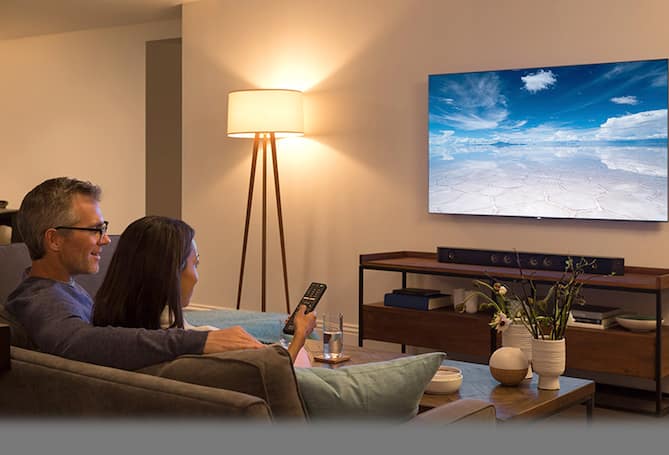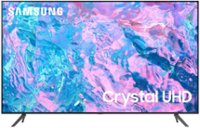What's the Difference Between 1080p, Full HD & 4K?

Best Selling Products
- $449.99Your price for this item is $449.99
- $239.99Your price for this item is $239.99$319.99The previous price for this item was $319.99
- $1,099.99Your price for this item is $1,099.99$1,299.99The previous price for this item was $1,299.99
- Clearance$519.99Your price for this item is $519.99
Buying anything with a screen or a camera these days can feel overwhelming. With so many different acronyms floating around, it's hard to know what format is right for you. What does "4K" mean, and how is it different from other high-definition video formats like 1080p and Full HD? Whether you’re looking for a DSLR camera, a smartphone, a laptop computer, a monitor, an action camera or a TV, these resolution terms can all impact your image quality and energy usage.
So, let’s walk through the basics of screen resolutions, look at how they differ and consider what you should look for when buying a new device.
What is resolution?
Resolution quality refers to the number of pixels in an image. A pixel is so tiny you can’t see it with the naked eye. But when you put a bunch of pixels together, they can make a complete image. The more pixels, the more detailed that image can be, and the higher the resolution.
A 1080p resolution means the image has 1920 pixels horizontally by 1080 vertically (1920x1080). You can find the total pixels in the image by multiplying those two numbers (the height and width) together, meaning a 1080p image has more than 2 million pixels. Full HD is just another term for 1080p or 1920x1080, and those are all ways of referring to the same resolution.
By contrast, 4K has a resolution of 3840x2160. That’s a lot more pixels in the overall image — totaling over 8 million pixels. As always, the higher the resolution, the sharper the picture will be.
However, you should know that if you watch a video recorded in Full HD on a 4K monitor, the image will not improve in quality. It will always be limited by the original recording resolution. The screen can add more pixels, but they will just serve as duplicates because the original recording did not capture as many unique pixels as the screen is able to show. Ultimately, your screen resolution is only as good as the video resolution you are viewing. The lower resolution element dictates the quality.
What is the best resolution available?
An 8K resolution is the highest you can find in the TV and camera markets. Devices with 8K have a pixel count of 7680x4320 — that’s more than 33 million pixels in the total image.
Devices offering this resolution are pricey, and it is often unnecessary to upgrade to 8K. You can get very satisfying images at lower resolutions. If you are streaming most of your content by watching Netflix or Hulu, you will never be taking advantage of the quality of an 8K television.
However, some people simply want to find the highest resolution out there. Screens and cameras that can record in 8K make sense if you love shooting and editing your own content or have ways of accessing super-high-resolution images. If that’s you, a new 8K television or 8K camera may be the right choice.
Why choose one resolution over another?
When it comes to choosing a resolution, it's a matter of balancing cost, quality and energy efficiency. Full HD (or 1080p) is likely to be one of the cheapest resolutions to purchase, and it will look good on most screens. It’s all you really need if you watch streaming services off the internet. However, you don't get the same level of detail as you do with higher resolutions, like 4K.
When choosing a resolution, you'll also want to consider energy efficiency and battery life. This is most meaningful for laptop screen resolutions. Laptops with a display resolution of 4K will present stunning visuals but will also use more energy and run through their battery life more quickly than an equivalent model with Full HD.
TVs don’t run on batteries, meaning energy usage may not be as much of a concern for you. But, if you want to lower your power bill or make an eco-friendly purchase, you might consider an HD model over a 4K television.
When shooting video on your smartphone or camera, you should also keep power consumption and storage space in mind when choosing a recording resolution. If you decide to film in 4K, you will run out of battery life and storage space sooner than you will if you shoot in 1080p (Full HD). If you plan on shooting in 8K, you should have extra memory cards and battery packs ready to go.
Hopefully, this rundown gave you a better sense of what resolution terminology means and what you want to look for in your purchases.



